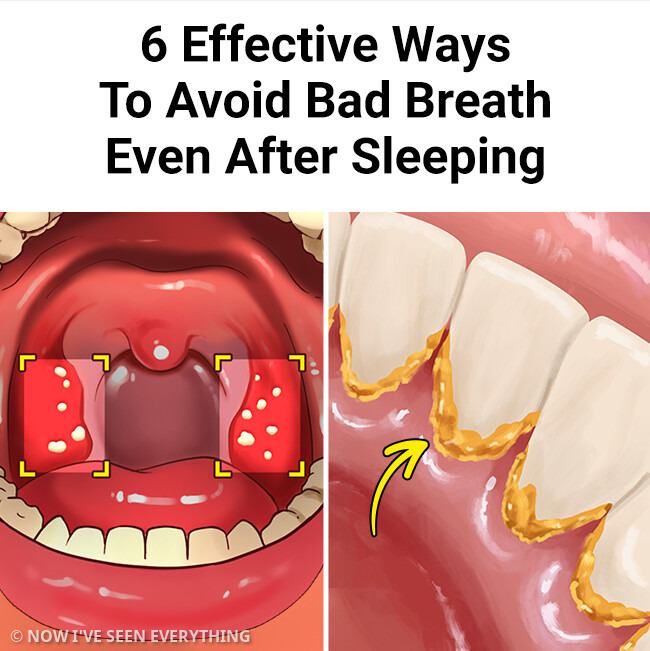Experts recommend brushing your teeth at least twice a day, after meals, and with fluoride toothpaste, but that will only get rid of 60% of the bacteria in your mouth. That’s why flossing and cleaning your tongue is very important too.
Rinsing and gargling with an alcohol-free mouthwash before going to bed could also help you control the growth of bacteria more efficiently.
Strong foods and beverages, like onions, garlic, or coffee, cause your stomach to absorb oils during digestion. These oils can get into your lungs through your bloodstream and be present even 72 hours after you ate, causing a bad odor. On the other hand, if you practice fasting or are on a low-carbohydrate diet, you might develop bad breath too because of the production of ketones, which have a strong aroma.
Consider eating less garlic, onions, spicy food, and sugary food, as well as reducing your coffee intake. If you’re on a special fast or follow a low-carb diet, talk to your medical practitioner to see if there’s something that can be done to include more carbs or regulate the production of ketones. You can also eat more avocados, nuts, and olive oil.
If you’ve noticed yourself coughing up small, yellowish chunks from your throat, those might be tonsil stones. While these stones aren’t harmful, they can cause bad breath. They are bacteria and debris that form in the crevices of your tonsils, ranging from small, soft bits to larger, hardened stones. While they’re usually harmless, in some cases, they can lead to infections. To prevent them, try using mouthwash regularly to reduce bacteria in your mouth and floss regularly.
Caring for your teeth is not just about brushing them and using dental floss, or visiting the dentist. Follow these rules to maintain a healthy smile for as long as possible.
ADVERTISEMENT
